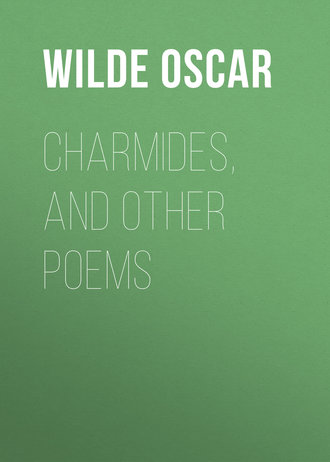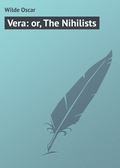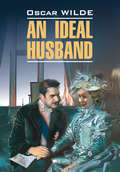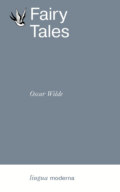полная версия

Оскар Уайльд
Charmides, and Other Poems
From mortal ken between the mountains and the morning star,
And when low down she spied the hapless pair,
And heard the Oread’s faint despairing cry,
Whose cadence seemed to play upon the air
As though it were a viol, hastily
She bade her pigeons fold each straining plume,
And dropt to earth, and reached the strand, and saw their dolorous doom.
For as a gardener turning back his head
To catch the last notes of the linnet, mows
With careless scythe too near some flower bed,
And cuts the thorny pillar of the rose,
And with the flower’s loosened loneliness
Strews the brown mould; or as some shepherd lad in wantonness
Driving his little flock along the mead
Treads down two daffodils, which side by aide
Have lured the lady-bird with yellow brede
And made the gaudy moth forget its pride,
Treads down their brimming golden chalices
Under light feet which were not made for such rude ravages;
Or as a schoolboy tired of his book
Flings himself down upon the reedy grass
And plucks two water-lilies from the brook,
And for a time forgets the hour glass,
Then wearies of their sweets, and goes his way,
And lets the hot sun kill them, even go these lovers lay.
And Venus cried, ‘It is dread Artemis
Whose bitter hand hath wrought this cruelty,
Or else that mightier maid whose care it is
To guard her strong and stainless majesty
Upon the hill Athenian, – alas!
That they who loved so well unloved into Death’s house should pass.’
So with soft hands she laid the boy and girl
In the great golden waggon tenderly
(Her white throat whiter than a moony pearl
Just threaded with a blue vein’s tapestry
Had not yet ceased to throb, and still her breast
Swayed like a wind-stirred lily in ambiguous unrest)
And then each pigeon spread its milky van,
The bright car soared into the dawning sky,
And like a cloud the aerial caravan
Passed over the Ægean silently,
Till the faint air was troubled with the song
From the wan mouths that call on bleeding Thammuz all night long.
But when the doves had reached their wonted goal
Where the wide stair of orbèd marble dips
Its snows into the sea, her fluttering soul
Just shook the trembling petals of her lips
And passed into the void, and Venus knew
That one fair maid the less would walk amid her retinue,
And bade her servants carve a cedar chest
With all the wonder of this history,
Within whose scented womb their limbs should rest
Where olive-trees make tender the blue sky
On the low hills of Paphos, and the Faun
Pipes in the noonday, and the nightingale sings on till dawn.
Nor failed they to obey her hest, and ere
The morning bee had stung the daffodil
With tiny fretful spear, or from its lair
The waking stag had leapt across the rill
And roused the ouzel, or the lizard crept
Athwart the sunny rock, beneath the grass their bodies slept.
And when day brake, within that silver shrine
Fed by the flames of cressets tremulous,
Queen Venus knelt and prayed to Proserpine
That she whose beauty made Death amorous
Should beg a guerdon from her pallid Lord,
And let Desire pass across dread Charon’s icy ford.
III
In melancholy moonless Acheron,
Farm for the goodly earth and joyous day
Where no spring ever buds, nor ripening sun
Weighs down the apple trees, nor flowery May
Chequers with chestnut blooms the grassy floor,
Where thrushes never sing, and piping linnets mate no more,
There by a dim and dark Lethæan well
Young Charmides was lying; wearily
He plucked the blossoms from the asphodel,
And with its little rifled treasury
Strewed the dull waters of the dusky stream,
And watched the white stars founder, and the land was like a dream,
When as he gazed into the watery glass
And through his brown hair’s curly tangles scanned
His own wan face, a shadow seemed to pass
Across the mirror, and a little hand
Stole into his, and warm lips timidly
Brushed his pale cheeks, and breathed their secret forth into a sigh.
Then turned he round his weary eyes and saw,
And ever nigher still their faces came,
And nigher ever did their young mouths draw
Until they seemed one perfect rose of flame,
And longing arms around her neck he cast,
And felt her throbbing bosom, and his breath came hot and fast,
And all his hoarded sweets were hers to kiss,
And all her maidenhood was his to slay,
And limb to limb in long and rapturous bliss
Their passion waxed and waned, – O why essay
To pipe again of love, too venturous reed!
Enough, enough that Eros laughed upon that flowerless mead.
Too venturous poesy, O why essay
To pipe again of passion! fold thy wings
O’er daring Icarus and bid thy lay
Sleep hidden in the lyre’s silent strings
Till thou hast found the old Castalian rill,
Or from the Lesbian waters plucked drowned Sappho’s golden quid!
Enough, enough that he whose life had been
A fiery pulse of sin, a splendid shame,
Could in the loveless land of Hades glean
One scorching harvest from those fields of flame
Where passion walks with naked unshod feet
And is not wounded, – ah! enough that once their lips could meet
In that wild throb when all existences
Seemed narrowed to one single ecstasy
Which dies through its own sweetness and the stress
Of too much pleasure, ere Persephone
Had bade them serve her by the ebon throne
Of the pale God who in the fields of Enna loosed her zone.
POEMS
REQUIESCAT
Tread lightly, she is near
Under the snow,
Speak gently, she can hear
The daisies grow.
All her bright golden hair
Tarnished with rust,
She that was young and fair
Fallen to dust.
Lily-like, white as snow,
She hardly knew
She was a woman, so
Sweetly she grew.
Coffin-board, heavy stone,
Lie on her breast,
I vex my heart alone,
She is at rest.
Peace, Peace, she cannot hear
Lyre or sonnet,
All my life’s buried here,
Heap earth upon it.
Avignon
SAN MINIATO
See, I have climbed the mountain side
Up to this holy house of God,
Where once that Angel-Painter trod
Who saw the heavens opened wide,
And throned upon the crescent moon
The Virginal white Queen of Grace, —
Mary! could I but see thy face
Death could not come at all too soon.
O crowned by God with thorns and pain!
Mother of Christ! O mystic wife!
My heart is weary of this life
And over-sad to sing again.
O crowned by God with love and flame!
O crowned by Christ the Holy One!
O listen ere the searching sun
Show to the world my sin and shame.
ROME UNVISITED
I
The corn has turned from grey to red,
Since first my spirit wandered forth
From the drear cities of the north,
And to Italia’s mountains fled.
And here I set my face towards home,
For all my pilgrimage is done,
Although, methinks, yon blood-red sun
Marshals the way to Holy Rome.
O Blessed Lady, who dost hold
Upon the seven hills thy reign!
O Mother without blot or stain,
Crowned with bright crowns of triple gold!
O Roma, Roma, at thy feet
I lay this barren gift of song!
For, ah! the way is steep and long
That leads unto thy sacred street.
II
And yet what joy it were for me
To turn my feet unto the south,
And journeying towards the Tiber mouth
To kneel again at Fiesole!
And wandering through the tangled pines
That break the gold of Arno’s stream,
To see the purple mist and gleam
Of morning on the Apennines
By many a vineyard-hidden home,
Orchard and olive-garden grey,
Till from the drear Campagna’s way
The seven hills bear up the dome!
III
A pilgrim from the northern seas —
What joy for me to seek alone
The wondrous temple and the throne
Of him who holds the awful keys!
When, bright with purple and with gold
Come priest and holy cardinal,
And borne above the heads of all
The gentle Shepherd of the Fold.
O joy to see before I die
The only God-anointed king,
And hear the silver trumpets ring
A triumph as he passes by!
Or at the brazen-pillared shrine
Holds high the mystic sacrifice,
And shows his God to human eyes
Beneath the veil of bread and wine.
IV
For lo, what changes time can bring!
The cycles of revolving years
May free my heart from all its fears,
And teach my lips a song to sing.
Before yon field of trembling gold
Is garnered into dusty sheaves,
Or ere the autumn’s scarlet leaves
Flutter as birds adown the wold,
I may have run the glorious race,
And caught the torch while yet aflame,
And called upon the holy name
Of Him who now doth hide His face.
Arona
HUMANITAD
It is full winter now: the trees are bare,
Save where the cattle huddle from the cold
Beneath the pine, for it doth never wear
The autumn’s gaudy livery whose gold
Her jealous brother pilfers, but is true
To the green doublet; bitter is the wind, as though it blew
From Saturn’s cave; a few thin wisps of hay
Lie on the sharp black hedges, where the wain
Dragged the sweet pillage of a summer’s day
From the low meadows up the narrow lane;
Upon the half-thawed snow the bleating sheep
Press close against the hurdles, and the shivering house-dogs creep
From the shut stable to the frozen stream
And back again disconsolate, and miss
The bawling shepherds and the noisy team;
And overhead in circling listlessness
The cawing rooks whirl round the frosted stack,
Or crowd the dripping boughs; and in the fen the ice-pools crack
Where the gaunt bittern stalks among the reeds
And flaps his wings, and stretches back his neck,
And hoots to see the moon; across the meads
Limps the poor frightened hare, a little speck;
And a stray seamew with its fretful cry
Flits like a sudden drift of snow against the dull grey sky.
Full winter: and the lusty goodman brings
His load of faggots from the chilly byre,
And stamps his feet upon the hearth, and flings
The sappy billets on the waning fire,
And laughs to see the sudden lightening scare
His children at their play, and yet, – the spring is in the air;
Already the slim crocus stirs the snow,
And soon yon blanchèd fields will bloom again
With nodding cowslips for some lad to mow,
For with the first warm kisses of the rain
The winter’s icy sorrow breaks to tears,
And the brown thrushes mate, and with bright eyes the rabbit peers
From the dark warren where the fir-cones lie,
And treads one snowdrop under foot, and runs
Over the mossy knoll, and blackbirds fly
Across our path at evening, and the suns
Stay longer with us; ah! how good to see
Grass-girdled spring in all her joy of laughing greenery
Dance through the hedges till the early rose,
(That sweet repentance of the thorny briar!)
Burst from its sheathèd emerald and disclose
The little quivering disk of golden fire
Which the bees know so well, for with it come
Pale boy’s-love, sops-in-wine, and daffadillies all in bloom.
Then up and down the field the sower goes,
While close behind the laughing younker scares
With shrilly whoop the black and thievish crows,
And then the chestnut-tree its glory wears,
And on the grass the creamy blossom falls
In odorous excess, and faint half-whispered madrigals
Steal from the bluebells’ nodding carillons
Each breezy morn, and then white jessamine,
That star of its own heaven, snap-dragons
With lolling crimson tongues, and eglantine
In dusty velvets clad usurp the bed
And woodland empery, and when the lingering rose hath shed
Red leaf by leaf its folded panoply,
And pansies closed their purple-lidded eyes,
Chrysanthemums from gilded argosy
Unload their gaudy scentless merchandise,
And violets getting overbold withdraw
From their shy nooks, and scarlet berries dot the leafless haw.
O happy field! and O thrice happy tree!
Soon will your queen in daisy-flowered smock
And crown of flower-de-luce trip down the lea,
Soon will the lazy shepherds drive their flock
Back to the pasture by the pool, and soon
Through the green leaves will float the hum of murmuring bees at noon.
Soon will the glade be bright with bellamour,
The flower which wantons love, and those sweet nuns
Vale-lilies in their snowy vestiture
Will tell their beaded pearls, and carnations
With mitred dusky leaves will scent the wind,
And straggling traveller’s-joy each hedge with yellow stars will bind.
Dear bride of Nature and most bounteous spring,
That canst give increase to the sweet-breath’d kine,
And to the kid its little horns, and bring
The soft and silky blossoms to the vine,
Where is that old nepenthe which of yore
Man got from poppy root and glossy-berried mandragore!
There was a time when any common bird
Could make me sing in unison, a time
When all the strings of boyish life were stirred
To quick response or more melodious rhyme
By every forest idyll; – do I change?
Or rather doth some evil thing through thy fair pleasaunce range?
Nay, nay, thou art the same: ’tis I who seek
To vex with sighs thy simple solitude,
And because fruitless tears bedew my cheek
Would have thee weep with me in brotherhood;
Fool! shall each wronged and restless spirit dare
To taint such wine with the salt poison of own despair!
Thou art the same: ’tis I whose wretched soul
Takes discontent to be its paramour,
And gives its kingdom to the rude control
Of what should be its servitor, – for sure
Wisdom is somewhere, though the stormy sea
Contain it not, and the huge deep answer ‘’Tis not in me.’
To burn with one clear flame, to stand erect
In natural honour, not to bend the knee





